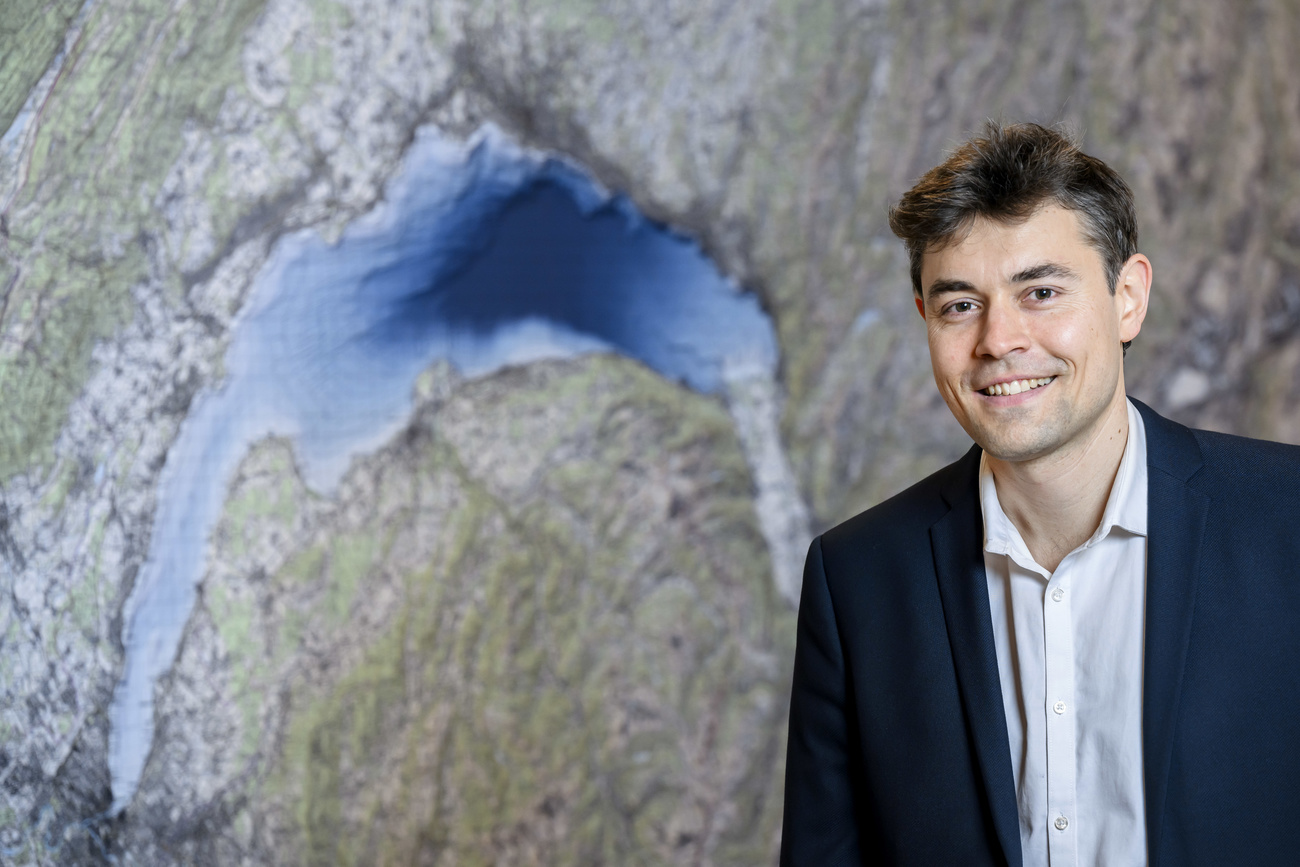
Extreme climate centre opens in Lausanne

The Expertise Centre for Climate Extremes (ECCE) has been officially inaugurated at the University of Lausanne. Its researchers aim to assess the risks associated with climate disruption as closely as possible, so that society can better anticipate them.
“A first in Switzerland, the centre’s mission is to support the public and private sectors in anticipating the extreme phenomena – heat waves, fires, floods and so on – that are set to multiply in the future, with dramatic consequences,” said its director Erwan Koch, who took up his post last June.
“The idea is that society’s needs should drive our research to some extent,” he told the Swiss News Agency Keystone-ATS on Friday.
The ECCE brings together specialists from the Faculty of Advanced Business Studies (HEC) and the Faculty of Geosciences and Environment (FGSE). “Its strength lies in its unique interdisciplinary approach, which breaks down the barriers between disciplines and fields in the field of global warming,” Koch said.
The centre, based at three sites on the campus, has two missions, according to Koch: it wants to carry out research and offer services on the prediction of climate extremes and their impacts, as well as on the assessment of the risks associated with climate extremes in present and future climates.
+ Climate records tumble as Switzerland swelters in heatwave
“We want to respond to society’s need for concrete solutions to climate change, whether they be cantons, municipalities, businesses or institutes,” he stressed. “Our academic experts will therefore be putting themselves at the service of society.”
For example, partnerships are planned with MeteoSwiss, the Federal Office for the Environment (FOEN), insurance and reinsurance companies, and the World Meteorological Organization (WMO).
Some 200 guests
The areas of expertise will cover meteorology, climatology, artificial intelligence, statistics, physics, risk management and sustainable finance, Koch explained.
+ Heatwave pushes ‘zero-degree’ line to record height in Switzerland
One of the first projects to be launched at ECCE is an assessment of the risk of run-off in Lausanne and the surrounding region. The aim is to model the risks – with the highest possible resolution – in the face of events such as the very violent storm in June 2018.
Friday’s inaugural event brought together some 200 guests throughout the day in the IDHEAP aula at the University of Lausanne. There were no fewer than 20 speeches by directors of national institutes and cantonal offices, representatives of MeteoSwiss and the WMO, professors, specialists and researchers.
This news story has been written and carefully fact-checked by an external editorial team. At SWI swissinfo.ch we select the most relevant news for an international audience and use automatic translation tools such as DeepL to translate it into English. Providing you with automatically translated news gives us the time to write more in-depth articles. You can find them here.
If you want to know more about how we work, have a look here, and if you have feedback on this news story please write to english@swissinfo.ch.

In compliance with the JTI standards
More: SWI swissinfo.ch certified by the Journalism Trust Initiative






























You can find an overview of ongoing debates with our journalists here . Please join us!
If you want to start a conversation about a topic raised in this article or want to report factual errors, email us at english@swissinfo.ch.